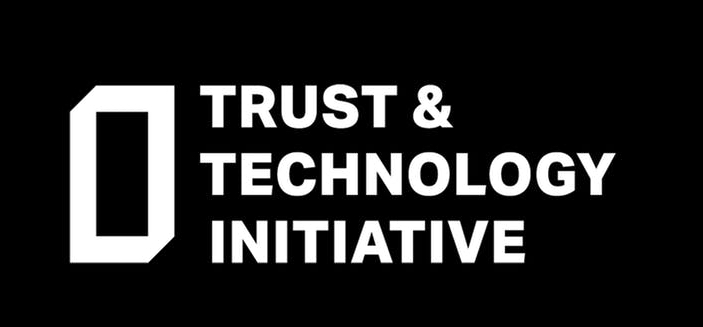Humans and Machines
The events and documents referenced in this section explored trust in and distrust of technology in a broader sense, reflecting on the rise of machines as novel 'human-like' agents and preview their role as collaborators and competitors in years to come.
Re-Engineering Humanity
Brett Frischmann , Villanova University. Talk hosted by the Faculty of Law, University of Cambridge
When and how do humans become programmable? Can we detect when this happens? How will we evaluate it? What makes us human? What about being human matters?
Humans have been shaped by technology since the dawn of time. Yet techno-social engineering of humans exists on an unprecedented scale and scope, and it is only growing more pervasive as we embed networked sensors in our public and private spaces, our devices, our clothing, and ourselves.
Frischmann examined how digital networked technologies affect our humanity. Instead of focusing on the doomsday scenario of super-intelligent, sentient AI enslaving humans, Frischmann focusses on how we engineer ourselves, how we outsource critical thinking to supposedly smart tech, and in doing so, risk deskilling ourselves. In short, Frischmann is less concerned with the engineering of intelligent machines than the engineering of unintelligent humans.
Brett Frischmann is the Charles Widger Endowed University Professor in Law, Business and Economics, Villanova University, an affiliated scholar of the Center for Internet and Society at Stanford Law School, and a trustee for the Nexa Center for Internet & Society, Politecnico di Torino. He teaches courses in intellectual property, Internet law, and technology policy. Frischmann is a prolific author, whose articles have appeared in numerous leading academic journals. He also has published important books on the relationships between infrastructural resources, governance, commons, and spillovers, including Infrastructure: The Social Value of Shared Resources (Oxford University Press, 2012), Governing Knowledge Commons (Oxford University Press, 2014, with Michael Madison and Katherine Strandburg), and Governing Medical Knowledge Commons (Cambridge University Press, 2017, with Michael Madison and Katherine Strandburg).
Can Machines Be Moral Agents?
Professor Nigel Crook, Oxford Brookes University
Nigel studied for his undergraduate degree at Lancaster University, initially doing Maths and Philosophy before switching to Computing and Philosophy, being particularly attracted to the logic side of Philosophy. He moved to – as it was then- Oxford Polytechnic in 1985 to undertake a PhD in Medical Diagnostics Systems and upon completion in 1989, became a lecturer. Whilst he never set out with the explicit intention of becoming an academic, he has followed his interests – logic, philosophy and computing.
Nigel put a lot of thought into how he could best combine his faith with his research, reflecting on how his academic expertise might enable him to marry the two. He realised that AI and apologetics were asking many of the same questions, particularly regarding what and who human beings are. He now combines his theological perspective with his AI work, in how to develop Robots with moral character. This speaks to questions at the heart of both his religious and academic interests.
Rise of the Machines
2019 Science Festival, University of Cambridge
‘Rise of the Machines’ is a quartet of short films by Dr Beth Singler, made with the Faraday Institute for Science and Religion and the Leverhulme Centre for the Future of Intelligence, University of Cambridge, with support from ARM for Friend in the Machine and Good in the Machine.
This screening accompanied the launch of the fourth instalment in the series. Ghost in the Machine explores what consciousness is and whether a machine could be truly conscious? How do we know we're conscious, should machines that "think like us" be free and what would happen if we merge our consciousness with machines.
The film features insights from top thinkers in the field - Murray Shanahan, Anders Sandberg, Karina Vold and many more. These international experts discuss topical issues within the field of artificial intelligence, such as: Can a robot be a true friend? How can we make ‘good’ AI? What does it mean for a machine to be ethical, and how can we use AI ethically?
All films produced and directed by Colin Ramsay and James Uren of DragonLight films, Cambridge.

